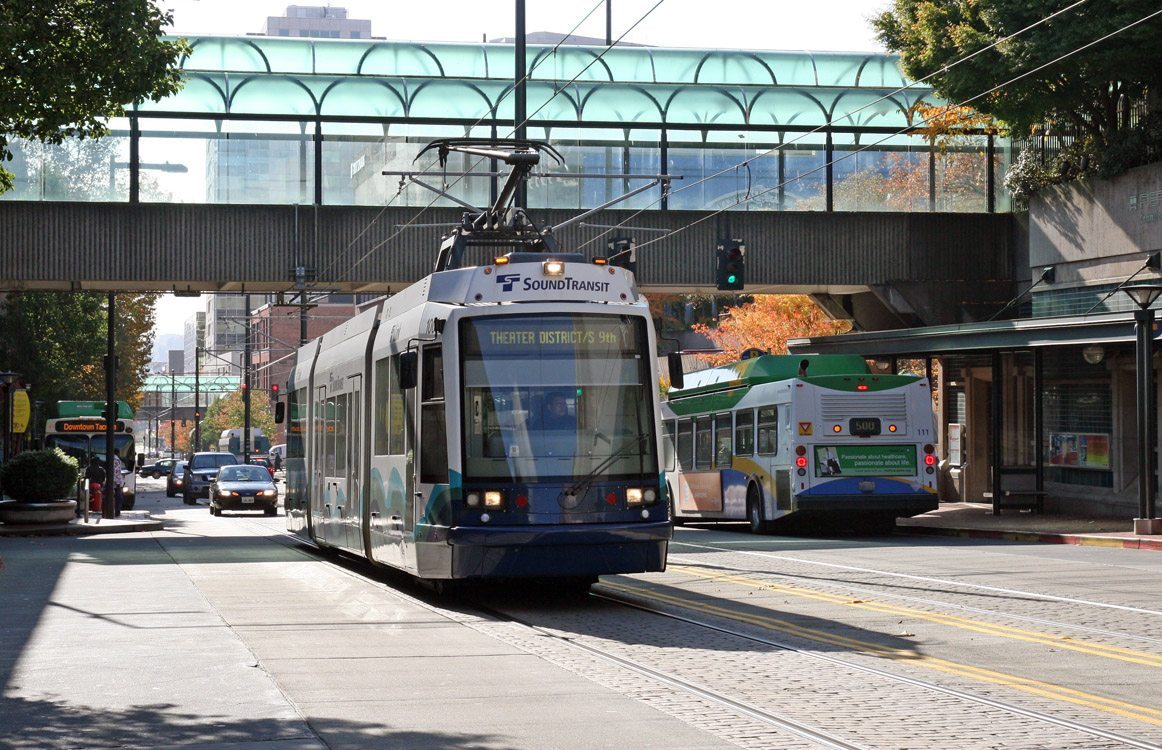Guess what working families will get to contend with if voters approve Sound Transit (ST3) in November – a sales tax rate of 10% in much of the greater Seattle area and 10.1% in Seattle, that’s what. Seattle already ranks fourth in the nation, with a rate of 9.6%, for highest sales taxes among major cities.
Chicago comes in “first” at 10.25%. Birmingham, Montgomery, Macon, and Mobile, Alabama are all tied for second at 10% while Fayetteville, Arkansas comes in third at 9.75%.
Of course, if ST3 were approved, Seattle would move into the not-so-honorable second place position.
While a sales tax rate of 10.1% is high, it’s not the highest rate residents within Sound Transit’s regional authority. Rather, it’s actually Snohomish County residents who will pay the highest sales tax rate should voters make the mistake of passing it, thanks to passage of that county’s Proposition 1 (a transit measure) last November.
Snohomish County voted to raise the sales tax rate by 0.3 percentage points for a total of 9.8 percent in much of the county. Should ST3 pass, Edmonds, Mukilteo, Lynnwood, Mountlake Terrace, Brier, and north Bothell would pay a whopping 10.3% in sales tax.
But, that’s not all. With a current sales tax rate of 9.9%, Mill Creek would pay a staggering 10.4% in sales tax – moving well ahead of Chicago for #1 in the country!
Those numbers make Chicago’s controversial 10.25% look cheap.
These sales tax rates really are unsustainable. They threaten small businesses that already struggle to compete in a tax environment that favors online retailers. And, as a regressive form of taxation, the sales tax most negatively impacts working families struggling to make ends meet
Adding insult to injury, should ST3 pass this fall, these taxes would never end. That’s Sound Transit’s way of avoiding accountability and having to come back to voters for more money in the future.
A sales tax rate as high as 10.4% for a transit agency that has, time and time again, broken all the promises it made to voters.
Sound Transit has proven itself untrustworthy. So, why should taxpayers trust Sound Transit to keep its promises and spend their hard-earned dollars responsibility?
Last year, Vancouver B.C. officials pushed a subway and light rail expansion project that carried a $7.5 billion price tag. They used many of the same arguments made by Sound Transit officials in an attempt to persuade the public. Voters rejected it by a whopping 62% of the vote.
As Shift previously stated, enough is enough. Voters should take a page out of Vancouver B.C. voters’ book. Sound Transit officials are asking for too much.




